Master course (given in Italian)
Master course in Chemical Engineering
The Program envisions 2 curricula given Italian:
- Chemical Engineering (lessons and exams are given in Italian);
- Chemical Engineering for Materials (lessons and exams are given in Italian);
and 1 curriculum given in English
The Academic Regulation of the Master Course is available in the Download area below
Admission
- If you earn a degree entitling you to enrol at the Master course, please contact the Secretary office for foreign students to know the procedure to be followed.
To be admitted to the master degree a student should satisfy the following requirements, concerning their curriculum and their personal qualification:The curriculum requirements are the achievment of a 3-years bachelor degree, with not less than 106 ECTS in specific curriculum areas, as specified below:
- not less than 20 ECTS of Mathematics;
- not less than 22 ECTS of Physics and Chemistry;
- not less than 48 ECTS of Chemical Engineering (thermodynamics, applied and industrial chemistry, transport phenomena, unit operations, reactors, etc.);
- not less than 9 ECTS of Industrial engineering (structural analysis, fluid-dynamics, applied mechanics, machinery design, mechanical plants, electrotechnics) and not less than 7 ECTS in the same topics or in Informatics and Economy.
The personal preparation is assessed on the basis of the knowledge of the English language and of the average grade that the students achieved during their Bachelor degree exams.
- The student must possess one of the following proof of English language competence certificates: CEFR grade ≥ B2; IELTS grade ≥ 6; Cambridge FCE- Grade B or CAE-Grade C, ETS-TOEFL paper-delivered grade ≥ 547 or internet-delivered grade ≥78.
- The student must have achieved an average grade in the Bachelor degree exams, calculated as the average of all grades weighted on the basis of the corresponding number of ECTS, is ≥ 22.5 / 30 or, in GPA (or equivalent) ≥ 7.5 /10.
Courses
To get the Master degree in Chemical Engineering you should attend some 12 courses, passing the exams, and discuss a thesis. The duration of the course is 2 years, corresponding to 120 ECTS. The two-year programme of the Masters Degree is organized so to include a group of characterizing and related subjects, which provide the knowledge and skills that are common to all Masters graduates. The Programme also provides an additional group of characterizing subjects that focus on the in-depth study of the tackled subjects and on the acquisition of more specific knowledge regarding the practical implications which may be of a particular interest for chemical engineers. The first group of subjects includes 5 subjects, which amount to a total of 42 credits. These subjects provide advanced mathematical methodological tools to analyse and model, as well as economic-related knowledge which enables students to assess the entity and profitability of the investments which are necessary to build plants. They also provide an in-depth analysis of the methods used to simulate the behaviour of reacting systems or non-equilibrium thermodynamics, to design heat exchange equipment and to undertake particular types of separations and they also provide an in-depth analysis of the theoretical methods that are the basis of process development, as well as of the principles and methods that are related to advanced process control.Student may then choose between two curricula which focus on the Chemical Engineering area (Chemical Processes, Environment and Safety, Biotechnology-Food) and on the Materials area. Each curricula includes some mandatory characterizing activities: for those attending the Chemical Engineering curriculum, these subject are Thermodynamics and Liquid Effluent Treatment processes. For students attending the Materials curriculum, the mandatory subjects are Metallurgical Processes and Plants and Ceramic and / or Polymeric and Composite Materials.Four subjects must be chosen among the list of recommended subjects that allow students to deepen their knowledge in the area in which they are interested in.The curriculum is completed by elective subjects, activities that may be useful for entering the job market (seminars which expand the knowledge of the students and help them create contacts with company representatives) and activities related to the final exam, such as drafting and presenting a graduation thesis. Through the graduation thesis, a specific topic in the field of chemical engineering must be discussed in an original and in-depth manner.
Attendance
The lessons are organized in 2 semesters:
- 1° semester: from the last week of Septempre to few days before Christmas;
- 2° semester: from the last week of February to the first week of June.
The lessons are planned from 8:00 a.m. to 7:00 p.m.: the hours of lessons per week are 8 for 9 ECTS and 5 for 6 ECTS courses, respectively.
- The lessons are planned at the San Pietro in Vincoli university pole.
- 5 regular exam sessions are planned for each year at January, February, June, July and September: 2 additional sessions are provided, in October and in March, which are reserved to the students who have not completed the exams at the end of the 2nd year.
Graduation
At the end of the course the student will prepare a thesis report, to be discussed in front of the Graduation Committee. The thesis work may be theoretical, experimental or may concern a design project related to some of the topics addressed in the Master course, and is carried out under the guidance of an academic supervisor, or, for external stages, with the contribution of a co-supervisor from the research center or the engineering company.
- To the final theses exam 20 ECTS are assigned, and the thesis work is usually completed in about 4 months of full-time work.
Services
The Master course relies on the structures of the Department of Chemical Engineering, Materials, Environment, which include facilities such as libraries, informatic labs, research labs.
International
Erasmus + student exchange programs are activated with Universities in the following Countries:
- Austria: Innsbruck;
- France: Ales, Nancy, Paris, Pau;
- Norway: Trondheim
- Netherlands: Delft
- Portugal: Lisbona;
- Spain: Barcellona, Madrid, Siviglia;
- Slovakia: Bratislava
- Sweden: Stockholm;
- Turkey: Izmir.
The person in charge for International contacts is Prof. Bubbico (roberto.bubbico@uniroma1.it)



